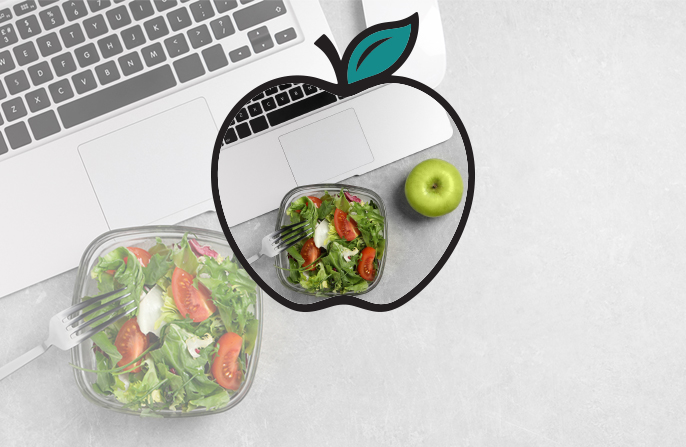BY MARK KINI

We’ve all heard the saying, “An apple a day keeps the doctor away.” In a world dominated by fast food and processed meals, it’s easy to overlook nature’s most powerful source of nutrition: fruits and vegetables. These colorful, nutrient-dense foods are far more than just side dishes—they are essential to maintaining a healthy body and mind. Regular consumption offers a wide range of benefits, from reducing the risk of chronic disease to enhancing mental well-being. Understanding their value can lead to healthier choices and lasting lifestyle improvements.
Rich in Nutrients
Fruits and vegetables are packed with essential vitamins, minerals, antioxidants, and dietary fiber. Each type brings something unique to the table. Oranges are rich in vitamin C to support immune health, while leafy greens like spinach provide iron and folate, which are critical for red blood cell production. Bananas offer potassium to help regulate blood pressure, and carrots are full of beta-carotene, essential for good vision.
These nutrients work in harmony to support the immune, cardiovascular, and digestive systems. Unlike processed foods, which are often high in sugar, salt, and unhealthy fats, fruits and vegetables provide clean, efficient fuel for the body.
Powerful Disease Prevention
Perhaps the most compelling reason to eat more fruits and vegetables is their role in preventing chronic disease. A diet rich in plant-based foods has been linked to a significantly lower risk of:
Heart Disease: The high fiber content helps reduce cholesterol, while antioxidants combat inflammation and oxidative stress.
Cancer: Cruciferous vegetables like broccoli and Brussels sprouts contain compounds shown to protect against cancer. Many fruits are rich in flavonoids and carotenoids, which may inhibit tumor growth.
Diabetes: High-fiber fruits and vegetables help stabilize blood sugar levels and lower the risk of type 2 diabetes. Whole fruits are especially beneficial compared to juices, thanks to their fiber content.
Obesity: Low in calories and high in volume, fruits and vegetables promote satiety, helping with weight management.
Support for Digestive Health
Fruits and vegetables are among the best sources of dietary fiber, which is vital for digestive health. Fiber adds bulk to stool, making it easier to pass thereby preventing constipation. It also supports the growth of healthy gut bacteria, which can influence everything from digestion to immune function and even mood. A consistent intake of fiber reduces the risk of gastrointestinal conditions like diverticulitis and irritable bowel syndrome (IBS). Additionally, the high water content in many fruits and vegetables promotes better hydration, which further aids digestion.
Boosted Mental Well-Being
Emerging research strongly supports the connection between diet and mental health. Diets high in fruits and vegetables are associated with lower rates of depression and anxiety. The vitamins, antioxidants, and phytonutrients they contain help reduce inflammation and support brain chemistry—both of which influence mood and cognitive performance.
Leafy greens and citrus fruits, which are high in folate, are particularly beneficial. Folate is essential for serotonin production, a neurotransmitter that helps regulate mood. Some studies have shown noticeable improvements in mental well-being within just two weeks of increasing fruit and vegetable intake.
Healthier Skin and Graceful Aging
The antioxidants and hydration provided by fruits and vegetables contribute to healthier, more radiant skin. Vitamins C and E protect against free radical damage, which can lead to premature aging. Water-rich foods like watermelon and cucumber help keep skin plump and hydrated.
Long term, a plant-rich diet supports bone health, mobility, and cognitive function, making it especially beneficial for healthy aging.
Simple, Versatile, and Delicious
Incorporating more fruits and vegetables into your diet doesn’t have to be difficult. Enjoy them fresh, steamed, grilled, roasted, or blended into smoothies. Choose from fresh, frozen, dried, or canned options—just look for those without added sugars or salt. Eating a variety of colors ensures a diverse range of nutrients.
Some people have a complicated relationship with vegetables, but they can be prepared in a variety of ways to make them palatable, even enjoyable, to almost anyone. Also, intact foods are highly preferable to processing like juicing, which usually eliminates the beneficial fiber. Fruits can replace sugary snacks, while vegetables can enhance everything from soups and sauces to sandwiches and grain bowls. With a little creativity, these foods can easily become the centerpiece of any meal.
A Note on Supplements
Nutrition products like AG1 and Simple Greens are often marketed as substitutes for whole fruits and vegetables. While they may offer convenience and provide some micronutrients and probiotics—especially helpful for frequent travelers—they cannot replace the fiber, volume, and fullness that come from eating real, whole foods. Use them as a supplement, not a substitute.
Final Thoughts
Eating more fruits and vegetables is one of the simplest and most impactful ways to improve your overall health. From preventing disease and improving digestion to enhancing mental clarity and skin health, their benefits are broad and well-supported by science. Making them a staple of your daily meals is a powerful investment in a longer, healthier, and more vibrant life. [CD0825]
Mark Kini is the President & CEO of Boston Chauffeur. He can be reached at



